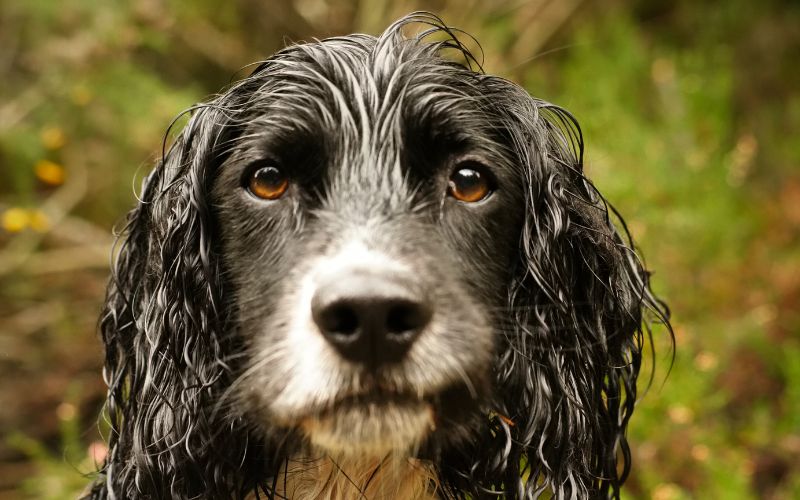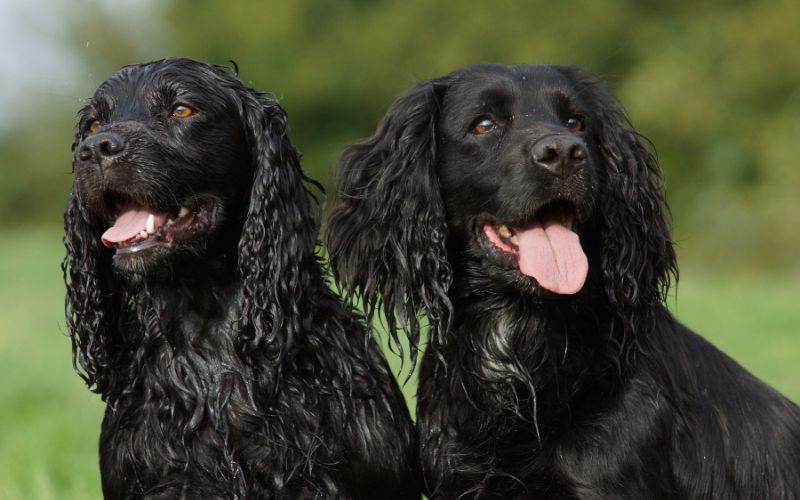If you are new to spaniels, either as a total dog newcomer or as a newcomer to the breed then you may be looking at training and be potentially wondering how long the training process might take.
Many factors go into how long it will take to train your spaniel. Some things to consider are the age of your dog, what you are hoping to achieve with training, and how much time and effort you are willing to put in. You’ll also want to consider the type of training that you’ll be embarking on and the desired end result. A fully trained, working spaniel will take more time and input than a dog that is a family pet.
Training your spaniel is a process
The time it takes to train a spaniel will depend on many factors, but you can generally expect the training process to be relatively quick and easy.
With patience, consistency and the right training methods, you’ll have a well-trained spaniel in no time.
Puppies learn quickly, and with consistent training, most will have a good understanding of the basics by the time they are 6-9 months old.
If you start training your puppy as soon as you bring them home, they will be well on their way to being a well-behaved dog.
However, even if you have an older dog, it is never too late to start training.
The amount of time you are willing to spend training your dog will also play a role in how long it takes them to learn.
If you only have a few minutes here and there, it will take longer to see results than if you dedicate several hours each week to training.

Spaniels learn quickly and are easy to train
Spaniels are considered one of the easier breeds to train, and they are certainly known for their intelligence.
They learn quickly and respond well to positive reinforcement methods such as treats and praise.
Many people who get a spaniel start with some basic obedience training. This can be done at home or at a local dog training class.
Once your dog has mastered the basics, you may want to consider more specialised training if you are hoping to use your spaniel for specific tasks such as hunting or fieldwork.
Consistency is key to efficient training of your spaniel
Whatever your training goals may be, consistency is key. Dogs learn best when they are given regular, consistent training sessions.
This means that you’ll need to set aside some time each day (or most days) to train your spaniel.
The amount of time required for training will also depend on how much your spaniel already knows.
A young dog who is just starting out will need more time and patience than an older dog who already has some basic obedience training.
Younger dogs will be easier to train than older ones
Generally speaking, younger dogs are easier to train than older ones.
This is because they are essentially a ‘clean sheet’ and have not yet developed any or many bad habits and they are also, generally, more receptive to input than an older dog.
This does not mean that you cannot train an older spaniel, it simply means that an older dog may take more time and input as frequently you’ll need to try and undo learned behaviour which will be replaced with the desired behaviour or training.
It will simply take longer and is likely to be more difficult for a novice or beginner to dog training.
The training process will be quicker if you put in the effort
The training process will be quicker if you put in the effort.
This means being consistent with your training, providing regular and frequent sessions, and being patient while your spaniel learns.
It is important to remember that all dogs learn at different rates, so don’t get discouraged if it takes your spaniel a little longer to learn than some of the other dogs you see in training classes.
Training a spaniel is not a race
When you are around dogs for long enough, particularly working dogs like spaniels, you’ll encounter other spaniel owners that are seemingly keen to play ‘one up man ship’.
Frequently these owners will proclaim the ability of their spaniels, claiming that they are fully trained or are well ahead with their training, and often this is with very young dogs.
As far as you should be concerned, ignore their claims.
If they have progressed so well, then that is great for them, the reality, however is normally very different and their dogs aren’t as good as they claim.
Focus on your own dog and your training.
By all means if you can connect with another spaniel owner that has good dogs and is relaxed around them, and that you feel is knowledgeable, then, by all means, take the opportunity to gain their advice and input.
But remember, it’s not a race.
Let your spaniel develop at his own pace. Help him to learn and don’t rush.

Remember that professional spaniel trainers have a different agenda
You’ll probably come across professional spaniel trainers who will claim that they can train your spaniel in around 3 to 6 months.
Remember that these people are running a commercial venture and as such have timescales that they need to work to to keep their business afloat.
The good professional spaniel trainers will be able to take a young dog at around 6 months of age and produce a decent, well trained working spaniel.
The key term here is ‘good’. If you do feel that you need to send your spaniel away for professional training then you need to put in some serious homework to identify a respected and capable trainer.
In recent decades there has been an overwhelming appearance of ‘professional trainers’ and it can be a minefield locating one that is good.
Look for a trainer that has a good track record in field trials and similar competitions, who is in demand and who trains dogs for respected members of society ( such as the monarchy ).
They do exist and it is worth the time and effort to identify them.
Using a professional spaniel trainer is expensive and you’ll want to make the right investment as opposed to using a ‘cowboy’.
Final Words
Training a spaniel is an immensely rewarding experience.
You’ll get to see your dog develop and grow in confidence as he learns what is expected of him.
You’ll also get to spend quality time with your spaniel which will only serve to strengthen the bond between you.
So, be patient, be consistent and enjoy the process.
Your spaniel will love you for it.




